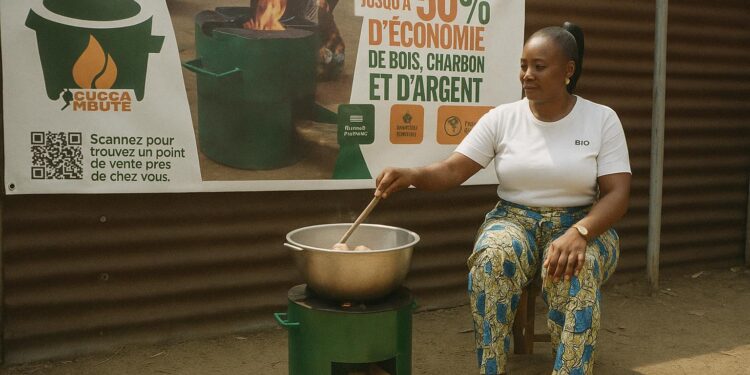Strategic context for clean cooking in Congo
In Congo-Brazzaville, the humble act of preparing dinner is intertwined with national climate diplomacy. Roughly 81 percent of households still depend on wood or charcoal for heat, a figure highlighted by the Ministry of Forest Economy in its latest energy-use survey.
Such reliance accelerates deforestation around Brazzaville and Pointe-Noire and contributes to indoor air pollution that the World Health Organization links to respiratory illnesses, particularly for women and children (WHO 2022).
Against this backdrop, the government, supported by international partners, has framed clean cooking as a lever for meeting Congo’s Nationally Determined Contributions under the Paris Agreement while bolstering public health goals.
Diplomatic observers argue that progress on clean cooking also enhances Congo’s narrative of social inclusion, an issue carefully monitored by development banks assessing governance indicators. Aligning gender, climate and health priorities in a single programme signals administrative coherence at a moment of heightened scrutiny.
Inside the Lituka Initiative
The Lituka project, launched in November 2023 with Central African Forest Initiative financing, epitomises this strategy. Implemented by the French-Congolese NGO Initiative Développement, it aims to distribute 60,000 improved cookstoves in urban hubs by 2026, according to project documents shared with diplomats in Brazzaville.
At the heart of Lituka lies community mobilisation. On 7 August, women presidents of Pointe-Noire mutual associations gathered for a live cooking demonstration using the Congo-Mboté stove, sharing feedback directly with engineers and municipal officials.
The government views such gatherings as micro-forums where policy meets daily practice, enabling the swift adaptation of subsidy schemes or training modules without cumbersome bureaucracy, officials from the Ministry of Social Affairs noted in an interview.
The Pointe-Noire forum concluded with an informal pledge: each mutual leader would return to her neighbourhood with a prototype stove, collect usage data for thirty days, and relay testimonies during a follow-up workshop. This bottom-up monitoring mechanism sidesteps survey fatigue and cultivates peer accountability.
Technology and local production of Congo-Mboté stove
Fabricated by local welders in Brazzaville and Pointe-Noire, the Congo-Mboté model blends two metal plates that can house either charcoal or small logs. This dual-fuel design resonates with urban kitchens transitioning gradually away from traditional three-stone fires.
Field tests supervised by Initiative Développement show fuel savings of up to 50 percent compared with baseline stoves, while boiling times fall by roughly one-third, results consistent with those observed in similar projects in Kenya and Ghana (UNDP 2021).
Crucially, lower smoke emissions address indoor air quality concerns. A pilot monitoring station installed in Mbota district registered particulate matter declines of almost 60 micrograms per cubic metre during meal preparation, according to preliminary Ministry of Health data.
Local fabrication also anchors apprenticeships certified by the National Institute, preserving technical skills amid industrial automation drives.
Diplomatic and economic dividends of improved stoves
Clean cooking seldom commands newspaper headlines, yet donors view it as a low-cost, high-return climate intervention. By distributing improved stoves, Congo can credibly claim avoided emissions in regional carbon accounting discussions, reinforcing its stature within the Central African Forest Initiative.
Paris-based climate negotiator Antoine Dufour notes that every tonne of wood spared from combustion strengthens Congo’s argument for performance-based payments under CAFI’s results framework, potentially unlocking new finance for community forestry.
Domestically, household economics matter just as much. Lydia Bryzelle Babakoula, head of the Rayon du Soleil mutual, calculates that a mere 200 CFA francs of charcoal now suffices to cook two pots, savings she says can be redirected toward school fees.
Economists at the University of Marien-Ngouabi estimate that widespread adoption could keep nearly six billion CFA francs annually within urban economies through reduced fuel purchases, a non-trivial boost amidst efforts to diversify away from hydrocarbons.
Local banks, sensing opportunity, are piloting micro-leasing instruments so households can pay for stoves over three months. Banque Postale du Congo reports that early adopters display a loan default rate below two percent, reinforcing arguments that green products can anchor inclusive finance.
Pathways to 2026 and regional prospects
Looking ahead, the Ministry of Forest Economy plans to integrate stove dissemination with national reforestation drives, thereby marrying supply-side tree planting with demand-side fuel efficiency.
Officials also weigh the possibility of registering the programme under the Article 6 carbon market mechanism, which could channel foreign exchange into local manufacturing workshops if verification costs remain manageable, according to sources close to the national climate council.
Stakeholders nevertheless stress that behaviour change must outpace hardware supply. Continuous engagement with women’s networks, school curricula and micro-credit lines is envisioned to transform the Congo-Mboté stove from demonstration piece to daily staple across socioeconomic strata.
Regional observers from the Economic Community of Central African States suggest that Congo-Brazzaville could serve as a pilot for a cross-border clean-cooking standard, easing tariff barriers for stove components and fostering industrial clusters that would benefit neighbouring Angola and Gabon.












































